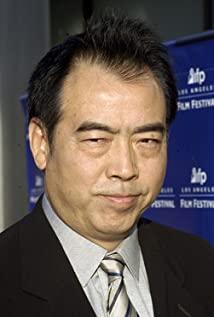I just watched Akira Kurosawa's "Spider Nest City" today, and I suddenly found that some parts are very similar to Chen Kaige's film, which can be compared. The theme of the two films is fate. The difference is that the fate of Spider Nest City is based on human desires, while Wuji talks about fate based on what I really don't see. This is also Wuji's biggest problem. . The director has been saying that this is fate and cannot be changed, but there is no basic supporting thing to prove the fatalism of the whole film. In Spider's Nest City, human's infinite desire for rights has led to countless repetitions of history, and the fate of human tragedy has been repeated again and again. In Wuji, however, the basis of fatalism is very ridiculous, even naive. The director has been telling us that this is fate! But what led to this fateful ending, there are only some very superficial and naive descriptions, such as the distrust of human beings caused by a steamed bun, which is very untenable.
Fatalism is often the subject of fifth-generation directors in China, such as Chen Kaige's Farewell My Concubine and Zhang Yimou's Alive. In Farewell My Concubine, fate runs through the film before and after. With the development and drastic changes of history, the fate of the little people is controlled by an invisible hand, and only death can be freed. The fate of mankind placed in history cannot be escaped. Only in Farewell My Concubine did Chen Kaige say what he always wanted to say.
The failure of "The Promise" is that it does not deeply explore the tragic root of the characters, that is, the characters' personalities, and instead pursues superficial visual effects. Of course, the Chinese freehand images shown in the visual pictures are still very ornamental. The film was a pass for the visual director and a complete failure for the director.
View more about
Wu ji reviews











